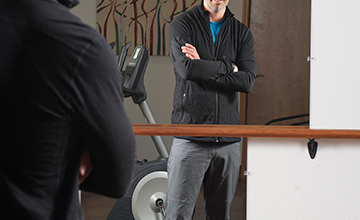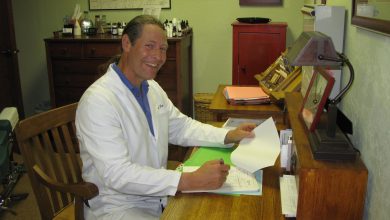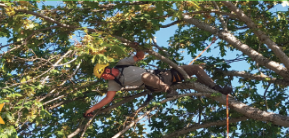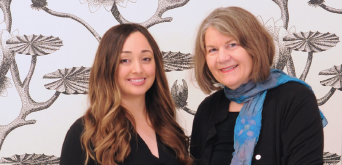Dr. Peter Nelson – Finding Your Blind Spot
 Take a moment. Look around the environment you are in. Turn all the way around. Now look at your life, your money, your relationships, and how you interact with the world around you.
Take a moment. Look around the environment you are in. Turn all the way around. Now look at your life, your money, your relationships, and how you interact with the world around you.
There are things in your life that you are not seeing, very apparent and big things! They are hiding in your blind spot.
Yes, just as if driving in your car. Your life contains it’s own blind spots. A place from which your vision, clarity or understanding is obscured.
Now imagine if you could see these blind spots… and remove them.
Do you think your life could be more interesting? Do you think you might make decisions from more informed vantage point…?
You bet you would!
Meet Dr. Peter Nelson, trained first as a neuroscientist and then as a social scientist he has spent the last 35 years coaching individuals and businesses around the world how to deploy attention in ways that help to reveal and overcome blind spots.
From providing corporate counsel on the hiring and firing of key individuals—to optimization and streamlining company dynamics—to helping design and implement research on what they do, he has provided unique insights and helped develop creative solutions to obstacles for individuals and organizations. In addition to facilitating higher level performance he also provides one-on-one coaching for individuals who simply wish to gain more insight into their own lives in order to function at a higher level.
All those who work with him agree that Dr. Nelson demonstrates an uncanny capacity to place his finger on a blind spot, thus making the invisible, VISIBLE.
Dr. Nelson, thanks for taking the time to do this interview with us today. In a nutshell can you describe what you do?
I think of myself as an attention coach who facilitates the discovery of what has been hidden—yet in one sense is in plain view—but somehow has remained obscured from our knowing. Remember when you were growing up parents and teachers would say, “Pay attention!” Our attention was directed and shaped so that we learned to fix it on a narrow band of possibility and eventually we forgot that there was ever any other way of knowing the world possible. Over time a kind of rigid-attention-amnesia left us in ignorance about ourselves as perceivers and knowers, leaving whole parts of the life-panorama obscured.
As a consultant and change-agent coach, I have the capacity to quickly and accurately drill down and ascertain the very center-most issue being obscured through old habits of attention in order to surface critical roadblocks, which then allows one to open awareness to new possibilities and move forward to create practical solutions—whether for increasing performance, the bottom line, or personal development.
What does the role of denial play in creating a blind spots both in our work and personal lives?
It is common now to talk about denial, in a psychological sense. There’s the old joke when we see someone making the same mistake yet again and refusing to acknowledge what appears to be an obvious problem to an onlooker—we say he’s just floating down that same old river—da’ nile. Of course there is the denial of refusing to look at the issue, but the far more pervasive form of denial is caused by a fixed attention that does not have the fluidity to see things from a new and different points-of-view. It is the denial of perceptual habit—a habit pattern that seems so natural to us that it gives us the sense that there is no other possible way of perceiving and knowing a situation.
How does the naming of the unnamed open one to expanded possibilities?
When we first see what was ‘hidden’, it is often a shock. However, shock is not always negative, especially if there is a sense that a door is opening to new possibilities. When a situation is viewed through ‘new’ eyes, solutions appear where before there seemed nowhere to go. In this sense the ‘unnamed’ is a territory open to discovery, like a new continent was for the explorers of the past.
Most common mistake business owners make?
One of the most common problems that arises occurs in the hiring of employees. We often make lists of the qualifications and experience we want new employees to bring to the workplace, as well as characteristics or background issues we want them not to have. When we find someone who appears to meet the requirements in most regards, we think we’ve found the person for the job. I call this type of selection process ‘driving blind’. We have a sense that we are at the controls—the steering wheel is in our hands, we apparently control the accelerator and the brakes—but we don’t notice that what we see through the windshield is not the road that we’re on, but a picture of the road we imagine we’re on. The person we hired had the right characteristics, but later we find that he’s not a good fit or she behaved in ways totally unexpected. We were too busy looking at our map and missed the territory—the person. Businesses are about people and we need to learn to see the person we are putting into our workplace.
How are you working with businesses to make more money in difficult times?
The huge amount of money businesses lose by making bad ‘people choices’, whether as partners, as hires or as customers, is well documented. In fact there is no business, much less a bottom line, without well-functioning and appropriate human beings behind it. It is the people and culture of any organization that are ultimately what success is built on.
When I work with individuals or organizations, it’s all about increasing awareness of the dynamics of process. Whether the process is the way in which something is manufactured or the human dynamics that underlie the functioning of the organization, it is seeing and understanding the process that counts.
You have lived and worked all around the world and outside the country for the past 35 years. What are advantages do you bring to the table when working with local clients?
Because of my broad experience, in terms of types of individuals and organizations as well as cultural settings, I have a great range of experience to draw from. I am always able to confront both the new and the old, so I’m very much at ease with whatever situation I find myself. Being deeply relaxed in my work means that I am open to seeing the roadblocks as well as discovering solutions with out the need to feel driven toward a particular solution.
In your years of helping people see what otherwise might remain unseen, what have some of your biggest success stories been?
Success stories for me are about my clients developing new awarenesses that lead to creative and successful action. On the one hand it can be helping an executive from a television network find the vision and inner resources to make the move into the CEO’s chair or helping choose a PA who has the combination of skill and interpersonal know-how to meet the needs of the particular person hiring her. The instance that comes to mind was a hire that was being made for an organization’s research group. On paper she was no more remarkable than the other applicants chosen for interview and they wanted to drop her from the list of possibles, but to my eye she had the X-factor. Against the usual instinct of the person doing the hiring, I suggested they choose her because they would be surprised by a particular quality that I could see she had. She turned out to be a female ‘Radar’ (the character from the TV series MASH). Not only did she do her job exceedingly well, he was pro-actively predictive of her employer’s work direction and needs.
Any last comments for our readers?
Most research demonstrates that the bottom line for businesses trying to succeed and individuals trying to live creative and productive lives is largely determined by our skills in understanding and relating to people. One can have great intelligence and drive, but without interpersonal awareness at an equal or higher level, one’s capacity to succeed will always be diminished—unless, of course, you’re a hermit living in a cave.
Learn More:
www.socsci.biz
541-255-3788




